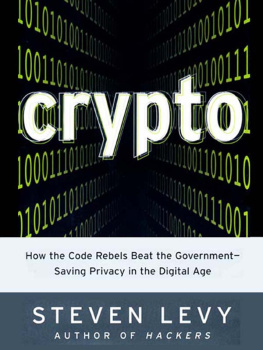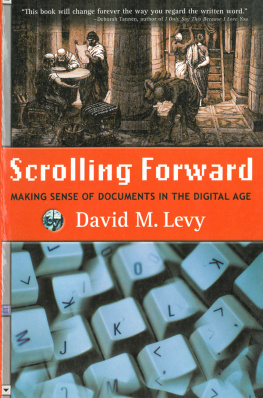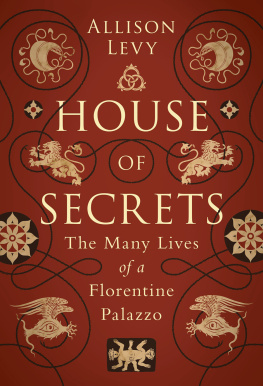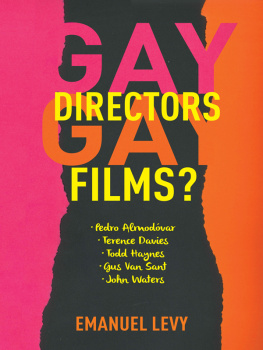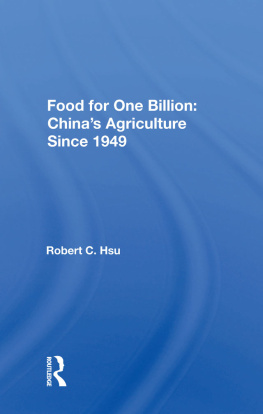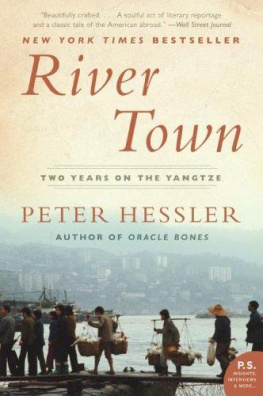
for PCVs and RPCVs worldwide

Contents
Preface
The People Who Are Special, Too
I strongly believe there is no species of millipede I will ever find palatable. The particular version I found in my bowl on a warm summer evening in the summer of 2005 was an easy call. There were hundreds of them, red and pink, each about an inch long. They had however many legs it takes to make something milli as well as angry-looking pincers from both the front and back. They had been deep fried and were left moist with oil. The dish included long sugar sticks that one could lick and dip into the bowl. The millipedes that stuck would get sucked off the stick in what I had been assured was a delicious combination of sweet and sour. Nevertheless, I demurred.
I cannot eat this, I told my host, a middle-aged Communist Party official in a dusty blue jacket. We were two of the dozen or so people who had gathered at the center of Unicorn Hill Village #3a tiny hamlet of perhaps thirty single-story houses constructed of cinder block and woodto celebrate my visit and the arrival of the Peace Corps. We were sitting around a low, round table on fourteen-inch-high plastic stools. The millipedes glistened before me in a chipped porcelain bowl. The group stared on in silence as the village leader looked from me to the millipedes and back to me. He had a spindly frame and tanned skin that was drawn taut against his cheekbones. He looked like a Chinese Voldemort.
Eat the food, he grunted. His wife had made the millipede dish according to what my guide told me was a very special recipe of the Bouyei people. The Bouyei were a tiny, impoverished ethnic group concentrated in the mountains of central China. These were some of the very people the Peace Corps had sent me to live with, learn from, andin theoryteach. My first meal in the village and I was off to a bad start.
You can eat this, my guide said with a nervous smile. It tastes good. He demonstrated for me, licking his sugar stick, dipping it in the bowl, and sucking off one particularly hairy millipede. Theyre sweet, he explained, crunching away happily, and Americans like sweet things.
I nodded. Thats true. I groped for a polite escape. But Im a little different than most Americans. This gained me perplexed looks from both my guide and my host.
Im a Jew.
Gasps. Widened eyes. Furrowed brows. Awkward silence. I said this last sentence in Chinese. Wo shi youtairen . The phrase, loosely translated, meant I Am a Person Who Is Special, Too.
Whyoh whyhad I said this? This was atheist, Communist China, after all. Didnt Karl Marx say religion was the opiate of the masses? Had I just told my hosts I was a drug addict? And hadnt Chairman Mao condemned religion as one of the Four Olds, a remnant (along with old culture, old habits, and old ideas) of the feudal past the Communist Party sought to destroy? I wondered if the arrest and deportation of a Peace Corps volunteer would make the evening news back home in Philadelphia.
As the silence around the table deepened and my face turned ever-darker shades of red, I marveled at the desperation of my religious mea culpa . I should have known better. I had, after all, already undergone months of Peace Corps training, sweating through seemingly endless hours of language classes, daily safety-and-security lectures, and occasional lessons in cross-cultural sensitivity. All of this, however, had taken place in Chengdu, the wealthy, relatively Americanized capital city of Sichuan Province, which was now a sixteen-hour train ride to the north. Chengdu had McDonalds, Starbucks, and an IKEA. It was the China of Thomas Friedman and other American pundits touting Chinas rise. I was now in Guizhou Province, the desperately poor, rural province in the dead center of China that would be my home for the next two years. Guizhou had millipedes.
I was happy that my training was complete and I was finally on my own. I was happy to be in a part of China I had rarely seen covered in the American media. I was feeling like an authentic, trailblazing Peace Corps volunteer on an Indiana Jones adventure. Unicorn Hill Village #3 was no Temple of Doom, but this was far from my typical dinner.
Dr. Jones played it cool; I was desperate. Embracing my Jewish roots at that particular moment was a foggy-headed attempt to get excused from the table. I had never yearned so powerfully for a bagel.
Jews cant eat insects, I mumbled, my eyes scanning for reactions from the men who surrounded me. I dont want to get into it, but there are a lot of rules for us
The tension seemed to mount until, quite suddenly, the silence was broken by a hoot from my hosts wife. Her cry was followed by smiles from others in the group, pats on my back, and even some applause.
Comrade Marx was Jewish, said a man sitting a few paces away from the table, staring at me intensely.
So was Einstein, beamed the man to my right, offering me a cigarette.
You must be very clever, said my guide, as the bowl of insects was removed from my side of the table, replaced by a dish of steaming meat.
Why would the CIA send us a Jew? mumbled Voldemort. I wasnt sure I had heard him correctly, but the raised eyebrow from my guide let me know I had, officially, just been accused of being a spy.
It was all a little bewildering, but I smiled like an idiot, happy to avoid the millipedes. I dug right into the mystery meat, and the men around the table quickly began eating their food as well. There was a toast to my health, then another to my success as a teacher, then another to American-Chinese friendship. We all got good and drunk.
I had passed the test. I was a Jew in the middle of nowhere, China.

Take Me Home, Country Roads
Jian Nan Chun airlines flight 100, direct from Beijing to Chengdu, offered me my first glimpse into life in a country of more than a billion people. I walked to my seat midway down the aisle and settled in next to an old Chinese lady with thinning gray hair. She was munching on spicy chicken feet and silently offered me a bite. I politely declined. She belched in response.
Together, we watched the rows fill in front of us. We also watched as a handful of passengers struggled to find their seats. They looked from their boarding passes to the numbers above the seats, and back to their boarding passes. Eventually, though all the seats were taken, four people stood in the aisle moving in confused circles. The flight, it seemed, was standing-room only. I sighed, feeling pity for the four passengers who would now be delayed. What a bummer, I mumbled.
Yes and no. A stewardess guided the four standing passengers towards the back of the plane where they doubled up with others. There was a bit of grumbling, especially from a petite octogenarian who ended up with a chubby teenager on his lap, but the eight people crammed into four small seats quickly struck up conversations with each other and began sharing cigarettes. We prepared for liftoff.
Lesson one from China: overpopulation leads to a certain flexibility when it comes to definitions of both comfort and safety.
I was one of fifty-seven Peace Corps trainees sprinkled throughout the plane. We were giddy, apprehensive, and fidgety as we imagined the ten weeks of training awaiting us in western China. It was meant to be an all-encompassing immersion that would prepare us for two years of volunteer teaching. We knew we would learn Chinese. Beyond this, however, we had only vague notions of what was to come.
Next page


